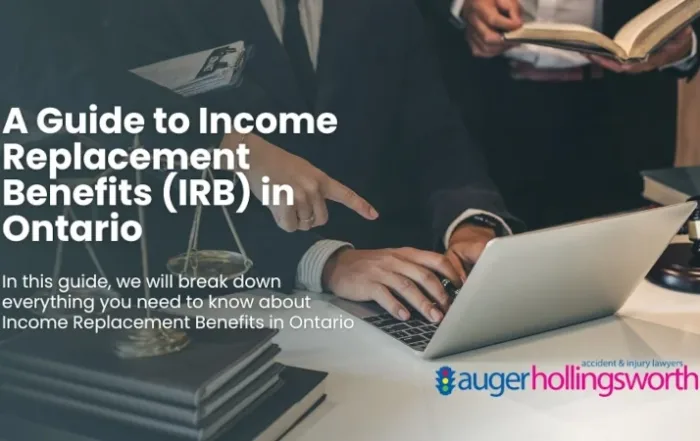Preparing to Testify at Discovery
Most Ontario personal injury lawyers will tell you that in 2015, we are facing an upswing in the number of personal injury cases that are going to trial. Although the vast majority of accident cases still settle at mediation or at a pre-trial, select cases are being slated, quite early in the process, for trial.
The increased likelihood of a trial means that your evidence at examination for discovery is even more important than ever. Examination for discovery is the process after a law suit is started where the opposing lawyer asks you questions under oath outside a courtroom setting. In the United States (and therefore on T.V.) this process is called “deposition”.
Clients at Auger Hollingsworth receive extensive preparation to testify for examination for discovery. For example, clients are given a USB key with an audio recording of tips and information about the examination process. Clients meet with two lawyers in our office (sometimes more) to review their past medical history, the issues surrounding the accident, and how their injuries have impacted their lives. During the preparation sessions, we also practice questions and answers so that our clients are comfortable communicating in a straight forward and clear manner.
Although we provide as much help to prepare our clients for discovery as we can, there are some simple things that our clients can do on their own to prepare for this important step.
- Look around your home and property to assess what tasks you did before the accident and how long they took. Your lawyers have not spent much, if any, time in your home. We will not be able to prompt you or prepare you about particularities of your pre-accident lifestyle.
- Review your personal photos for three or so years before the accident. Reviewing your activities and your appearance through photos may make the changes in your life more obvious to you and therefore easier to describe.
- Your lawyers will have some medical information about you from before the accident. However, if you had any major medical issues, surgeries or conditions more than 5-7 years before the accident, bring those to your lawyer’s attention. Pre-existing conditions or past medical history is usually only damaging if it is concealed and then revealed. Go back through your personal records to make sure you recall dates for older medical issues.
- Look at your c.v. to make sure it is accurate and up to date if you will be relying on it for your work and education history. It’s never a good idea to embellish your resume but it is certainly not a good idea to use an “enhanced” resume in a law suit.
- If you have an unusual work set up, bring this to your lawyer’s attention. Most of our clients are salaried employees. If you are on commission, self employed and take a draw, get paid through spouse’s company for income splitting or anything else that is unsual, make sure you have a clear understanding of the details of how it works. Many discoveries get bogged down when the witness cannot explain how they are paid.
Examination for Discovery is not a ton of fun. That’s the truth! However, the feeling after discovery when you know you have “nailed it” is great. A great witness at discovery always increases the value of the case, either at settlement or at trial.
For more information about examination for discovery or your Ontario Personal Injury case, call us at 613 233-4529.














